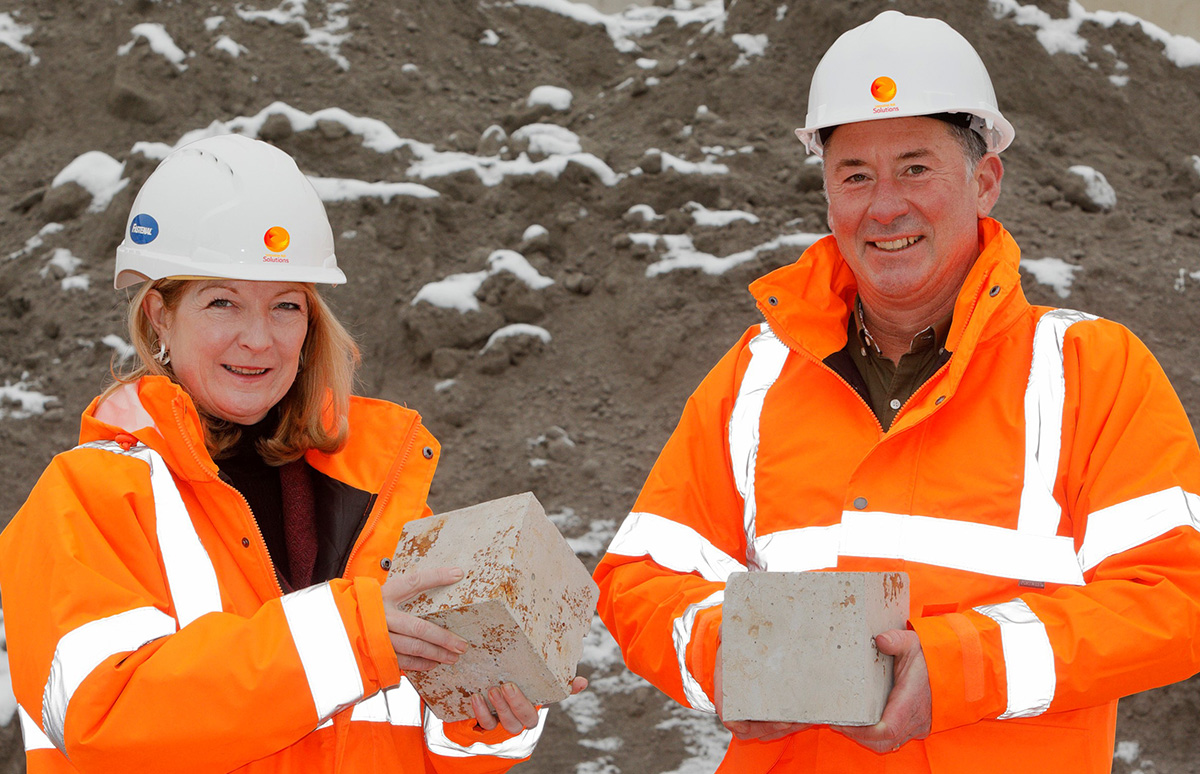
A Scottish-based manufacturing facility which will enable the production of lower carbon cement products has secured a £500,000 award from Zero Waste Scotland’s Circular Economy Investment Fund.
The new site is being launched by Innovative Ash Solutions, a joint venture between Levenseat Limited and Organic Innovative Solutions Limited.
The funding will support the development of an industrial scale facility, capable of processing up to 20,000 tonnes of incineration fly, cyclone and boiler ash into a sustainable form of pulverised fuel ash (PFA), a key ingredient used in cement.
IAS secured end-of-waste status from SEPA earlier this year for the PFA replacement product, developed in partnership with the University of Strathclyde Civil & Environmental Engineering Department and Construction Scotland Innovation Centre (CSIC).
Using this IAS patented process, which diverts waste from landfill and avoids the use of virgin sand, creates a product described as cheaper and offering reduced environmental impact of concrete production compared to imported PFA.
IAS has already secured letters of interest for over 60,000 tonnes of its new product and an additional feedstock contract. The production facility, which will be located on Levenseat’s site in South Lanarkshire, is due to be commissioned by the end of 2022.
Over the next five years, IAS intends to build three full scale industrial plants which will produce up to 54,000 tonnes of PFA replacement annually and reduce CO2e emissions by 500,000 tonnes. The entire project could create 20 ‘green jobs’ and also sustain additional construction jobs in the building of the facilities.
Innovative Ash Solutions director Robert Green said, “We’re delighted to have secured this significant award from Zero Waste Scotland’s Circular Economy Investment Fund. It will enable us to scale production of the innovative PFA replacement developed in partnership with Strathclyde University and CSIC.
“Our product not only provides a cheaper concrete option, it also means lower emission concrete production by using a safe, accredited end-of-waste solution made from materials diverted from landfill sites. This provides a win-win scenario for construction companies which are facing rising costs and additional pressures to lower their carbon footprint.”
Scottish Government trade minister Ivan McKee jointly announced the Circular Economy Investment Fund award. He said, “Today’s award underlines the Scottish Government’s support for collaborations between business and academia to achieve sustainable construction solutions and develop Scottish supply chains. I applaud IAS and its partners for developing an innovative carbon-reducing PFA replacement product.
“This is a tribute to the innovation and adaptability displayed by businesses. We want to work with them and others to build an economy for everyone by delivering greater, greener and fairer prosperity. This funding award from Zero Waste Scotland will help transform the idea into a viable business which will further support Scotland’s net zero ambitions.”
Jill Farrell, director, customer engagement and communications, at Zero Waste Scotland, added, “To truly end our contribution to the climate crisis we need to tackle overconsumption and switch from a wasteful linear economy to a circular economy. Construction relies heavily on finite resources, which is why we’re committed to helping businesses, such as Innovative Ash Solutions and its partners, in developing bold, ingenious, and sustainable construction solutions that reduce the demand for and waste of virgin materials.
“Innovative companies in Scotland are truly leading the way in finding solutions to some of our biggest challenges in the construction industry. I’m thrilled that support from the Circular Economy Investment Fund will enable IAS to continue to build a more environmentally friendly future while contributing to Scotland’s transition to a circular economy.”








